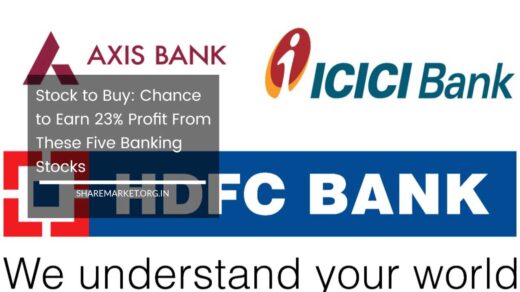South Indian Bank Share Price Surge 10% after Approval of Rights Issue

South Indian Bank Share Price
South Indian Bank Initiates Strong Rally with Approval of Rights Issue
In a remarkable turn of events on February 22, South Indian Bank witnessed a robust rally, propelling its shares by more than 10 percent in a single trading day.
The private sector bank’s stock closed at Rs 35.70, marking an impressive gain of 9.71 percent. This surge was attributed to the bank’s announcement and subsequent approval of the terms for its upcoming rights issue, signifying a pivotal moment for the institution and its investors.
Rights Issue Approval Spurs Positive Market Reaction
The market responded positively to the news of South Indian Bank’s approval of its rights issue terms. Investors engaged in heavy buying activity, leading to a notable increase in the bank’s market capitalization, which now stands at Rs 7,471.09 crore.
The surge in share value not only reflects investor confidence but also highlights the potential positive impact of the impending rights issue on the bank’s financial health.
Strategic Move to Raise Capital
South Indian Bank aims to strengthen its financial position significantly by raising Rs 1151 crore through a rights issue.
This capital infusion is a strategic move to enhance the bank’s capabilities, potentially positioning it for future growth and ensuring compliance with regulatory capital adequacy requirements.
The bank’s decision to opt for a rights issue underscores its commitment to fortifying its financial foundations.
Rights Issue Details Unveiled
Under the proposed rights issue, South Indian Bank plans to issue 52.31 crore rights shares, providing existing shareholders with an opportunity to participate in the capital-raising endeavor.
The rights issue is scheduled to open on March 6 and will conclude on March 20. Priced attractively at Rs 22 per share, the rights issue offers a substantial discount of approximately 38 percent from the bank’s closing price on the preceding Wednesday.
Record Date and Eligibility Criteria
The record date for the rights issue has been fixed as February 27. Shareholders of South Indian Bank will be entitled to receive one right share for every four shares held by them as of the record date.
This mechanism ensures that only existing shareholders as of the specified date are eligible to participate in the rights issue, aligning with the standard procedure for such capital-raising initiatives.
Understanding Rights Issue as a Fundraising Tool
A rights issue is a method through which a company raises capital by issuing additional shares to its existing shareholders.
It allows shareholders to purchase these new shares at a predetermined price, providing an avenue for the company to generate funds without seeking external investors.
This approach is often employed when a company aims to bolster its financial position, embark on expansion plans, or address other strategic priorities.
Rights Issue Timeline and Pricing Strategy
The timeline for the rights issue aligns with the bank’s strategic objectives. Opening on March 6 and closing on March 20, the window provides shareholders with a reasonable timeframe to evaluate and participate in the offering.
The pricing strategy, with a substantial discount to the market price, is a thoughtful consideration to make the rights issue more attractive to existing shareholders, encouraging higher participation.
Potential Impact on Financial Metrics
The successful completion of the rights issue is expected to have a tangible impact on South Indian Bank’s financial metrics.
Notably, the bank anticipates an enhancement in its Tier-I capital ratio from the current 13.37 percent to a robust 16.58 percent post the rights issue.
This improvement reflects a bolstering of the bank’s core capital, a crucial element in ensuring financial stability and regulatory compliance.
Balancing Act: Book Value vs. Capital Adequacy
While the Tier-I capital ratio is expected to see a substantial improvement, it is crucial to acknowledge that the book value per share is projected to decline by 7.2 percent, settling at Rs 31.9 after the rights issue.
This balancing act between strengthening capital adequacy and a temporary decline in book value underscores the strategic considerations involved in such financial maneuvers.
Investor Considerations and Market Dynamics
As the rights issue unfolds, investors and market participants will keenly observe its impact on South Indian Bank’s performance and shareholder value.
The positive market reaction to the approval of rights issue terms indicates a favorable sentiment among investors.
However, the success of the rights issue will ultimately depend on the level of participation from existing shareholders and the effective utilization of the raised capital by the bank.
Strategic Significance and Confidence in Future Growth
South Indian Bank’s decision to initiate a rights issue is not merely a capital-raising exercise but a strategic move that reflects the bank’s confidence in its future growth prospects.
The injection of funds through the rights issue is expected to fuel the bank’s ability to navigate dynamic market conditions, seize growth opportunities, and enhance its overall resilience in the financial landscape.
Final Remarks: Navigating Towards a Financially Robust Future
In conclusion, South Indian Bank’s recent rally and the subsequent approval of its rights issue terms mark a significant chapter in the institution’s financial narrative.
The rights issue, with its well-thought-out pricing strategy and eligibility criteria, presents a unique opportunity for existing shareholders to actively participate in the bank’s growth story.
As the rights issue progresses, it will be interesting to observe how South Indian Bank strategically deploys the raised capital and navigates the evolving financial landscape, potentially setting the stage for a financially robust future.

















